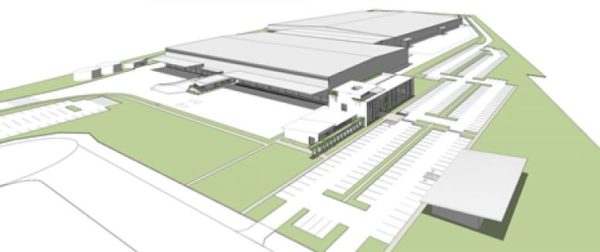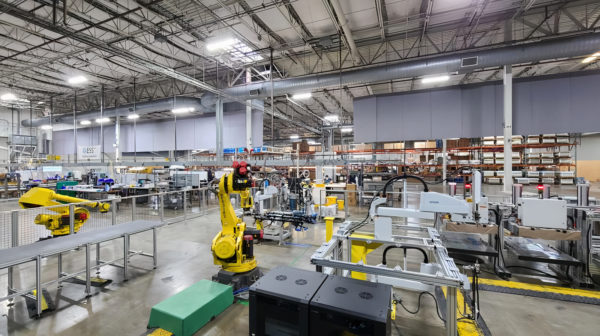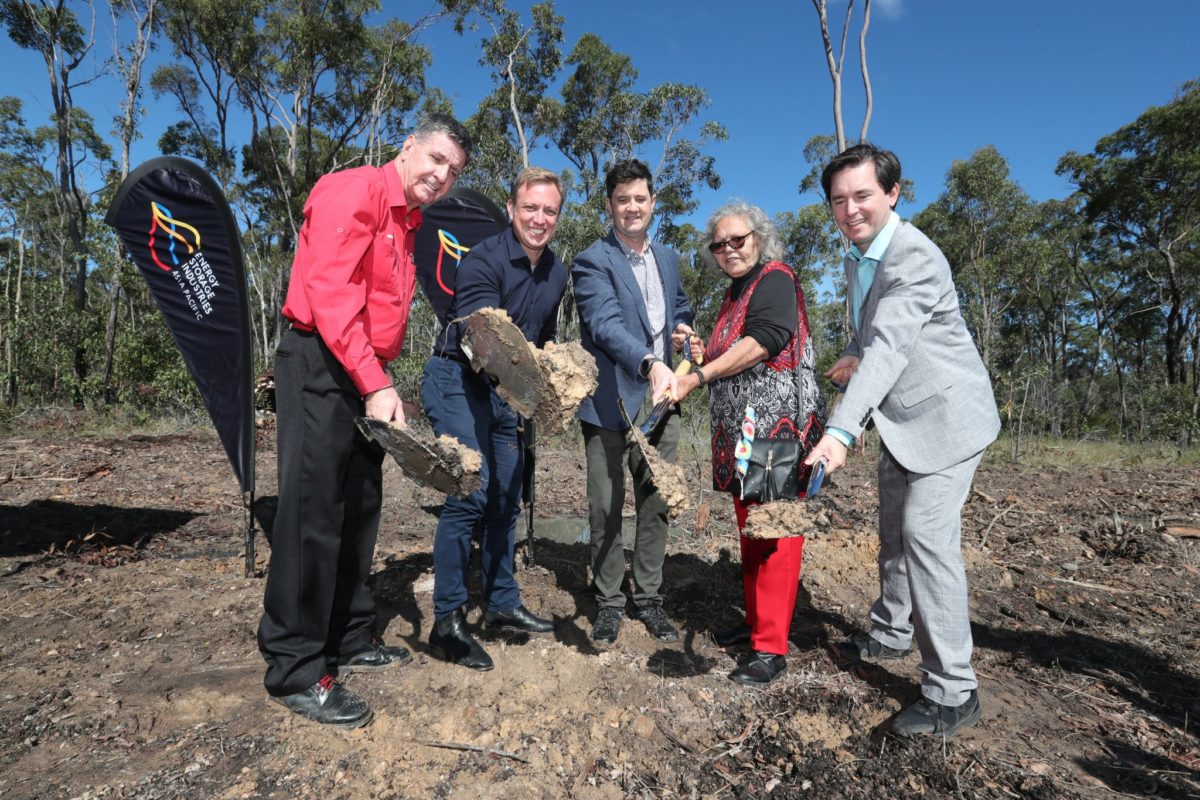Queensland-based renewables company Energy Storage Industries — Asia Pacific (ESI) has begun building a $70 million battery manufacturing centre in Maryborough where it plans to produce long-life iron-flow batteries well suited to large-scale energy storage applications.
ESI director Stuart Parry said the Maryborough facility will deliver significant social and economic benefits to regional communities while helping to support the state’s renewable energy targets through the production of low-cost, environmentally friendly batteries for large-scale energy storage.
“Our initial manufacturing base at Maryborough will manufacture and distribute iron-flow batteries that allow large-scale energy storage for wholesale electricity generators, energy retailers, and commercial and industrial customers,” he said.
“Our products are essential to Australia’s renewable energy future.”
Parry said he expects the Maryborough centre to be operational by 2024 and also revealed the company plans to expand operations, with ESI – an offshoot of Brisbane-based renewables investor Sword and Stone Capital Management – already assessing locations for a second Queensland facility, most likely in either Townsville or Gladstone.
“We have plans to expand our operations so that, by the end of 2026, ESI will deliver up to 400 MW of energy storage each year for the next 15 years, that is 6 GW of energy storage, or 20% of Australia’s renewable energy storage needs,” he said.
“When fully operational in 2026, we will have up to 500 highly skilled employees and contractors working at our facilities throughout regional Queensland.
“Longer-term, we plan to export our renewable energy storage solutions to the Asia Pacific region.”

Image: EIS
The Maryborough facility will be the first of its kind in Australia with Parry saying EIS had identified iron-flow technology as superior to rival technologies, including lithium-ion batteries which have dominated the large-scale storage sector.
“Our batteries have a 10 to 14-hour storage capacity and a lifecycle of 25 years, something that is not provided by other battery technologies,” he said.
“The low-cost, environmentally friendly electrolyte also means that the product is ideally suited to remote locations.”
It is expected EIS will utilise flow battery and electrolyte management system technology developed by United States-based battery specialist ESS Inc with the device either deployed in containers or in a large-scale grid connected warehouse.
Among the claimed benefits of ESI’s modular iron-flow batteries is an expected service life of 25 years (20,000+ cycling capability with no degradation) and the use of abundant materials that can be sourced locally.
The electrolyte is non-flammable and non-toxic, the batteries can operate efficiently in ambient temperatures of – 5°C to 50°C, and are 100% recyclable. The batteries can also be stored charged for extended periods without losing charge and system storage capacity can be increased by increasing the liquid storage volume.
And while lithium-ion might have a lower capital cost per kilowatt-hour, ESS claims its iron-flow system can reportedly claim parity at four hours and win thereafter.
ESI said the design of the battery system will allow it to procure up to 80% of the battery components in regional Queensland.

Image: ESS Inc
Parry said ESI is fully integrated and will manufacture, install, maintain and finance energy storage solutions for their customers and once fully operational, the company expects its projects will contribute an estimated $4.5 billion to the Queensland economy.
Queensland Deputy Premier Steven Miles welcomed the manufacturing facility and said the government is working to position the state as the gateway for battery innovation, which he described as “a key component of the energy revolution”.
“Energy storage is key to unlocking Queensland’s renewable energy revolution as we power towards our target of having 50% renewables by 2030,” he said.
“Queensland is becoming a renewable energy superpower and we’re well-positioned to be Australia and Asia-Pacific’s energy storage gateway.
“In the near future, power generated from a nearby wind or solar farm will be stored in iron-flow batteries and help power Queensland.”
The start of work on the Maryborough manufacturing facility is the latest in a suite of big battery announcements. In recent days, energy generator Stanwell has revealed plans to a build a massive 1.45 GW/2.9 GWh battery storage system in Central Queensland while fellow government-owned utility CS Energy has outlined plans to build a 200 MW/400 MWh battery at Greenbank in Brisbane’s outer southern suburbs.
The batteries are among plans for 13 large-scale battery systems outlined by the Queensland government in the most recent state budget, alongside $15 million to scale up the National Battery Testing Centre in Brisbane and $5 million to finalise and release a Queensland Battery Strategy, due later this year.
This content is protected by copyright and may not be reused. If you want to cooperate with us and would like to reuse some of our content, please contact: editors@pv-magazine.com.









5 comments
By submitting this form you agree to pv magazine using your data for the purposes of publishing your comment.
Your personal data will only be disclosed or otherwise transmitted to third parties for the purposes of spam filtering or if this is necessary for technical maintenance of the website. Any other transfer to third parties will not take place unless this is justified on the basis of applicable data protection regulations or if pv magazine is legally obliged to do so.
You may revoke this consent at any time with effect for the future, in which case your personal data will be deleted immediately. Otherwise, your data will be deleted if pv magazine has processed your request or the purpose of data storage is fulfilled.
Further information on data privacy can be found in our Data Protection Policy.